OU Libraries Timeline: services
1959: Temporary library
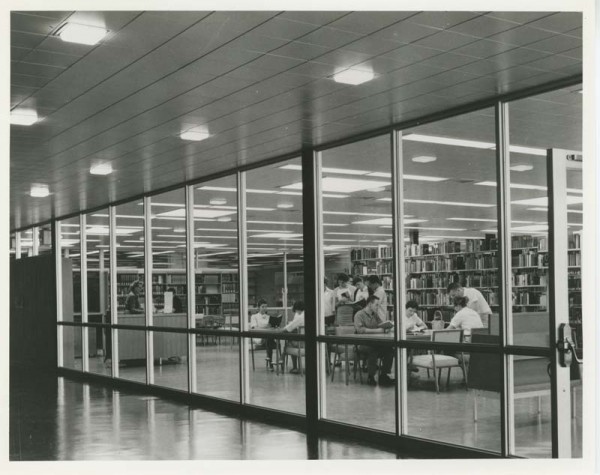 Temporary library quarters were set up at North Foundation Hall. Books were available with 'complete freedom' (no restrictions on number that could be borrowed, no due dates, no fines, and, initially, 24 hour library access). Material was shelved alphabetically to make it available before it was catalogued.
Temporary library quarters were set up at North Foundation Hall. Books were available with 'complete freedom' (no restrictions on number that could be borrowed, no due dates, no fines, and, initially, 24 hour library access). Material was shelved alphabetically to make it available before it was catalogued.
1962: Curriculum Materials Center
The Curriculum Materials Center opened in an unfinished area of the basement of Kresge Library, providing resources for education students to use in teaching.1964: New security measures
A door check security system, due dates and fines for overdue books were introduced.1971: Performing Arts Library
The Performing Arts Library opened in Varner Hall.1972: Telephone hotline
A telephone information hotline service was established, for county-wide use. It provided "immediate reference, referral and photo-copy service when the resources of the local public libraries are unable to meet the needs of their patrons."1978: Calculators
The library purchased two hand-held calculators that students could borrow. The annual report stated that "students have had occasion to borrow these calculators frequently and that the calculators have withstood moderately heavy use."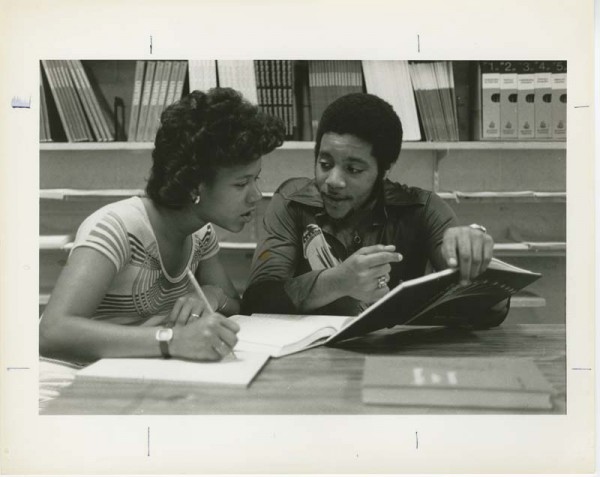
1983: OCLC terminal
The library's first OCLC computer terminal for public use was installed.1985: Term paper clinic
The library offered a 'Term Paper Clinic' (half-hour one-on-one meetings with a librarian) to assist undergraduates with their research and writing.1987: First online catalog
The online catalog LUIS (Library User Information System) was introduced to the public. It allowed users to search the catalogs of Oakland University, Wayne State, the Detroit Public Library, and other local institutions.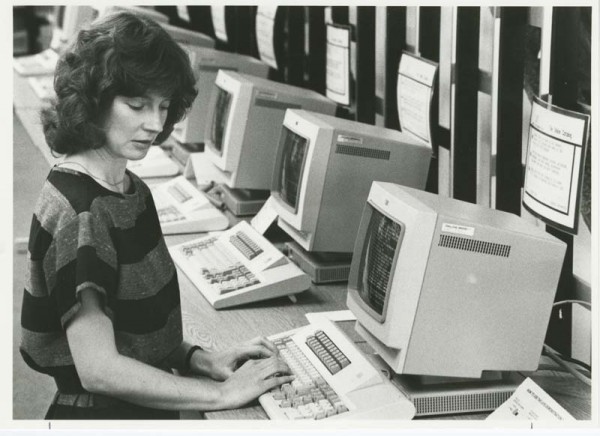
1987: Library innovations recognized
The U.S. Education Department honored Oakland University for its innovative efforts in library services, particularly its reference hotline.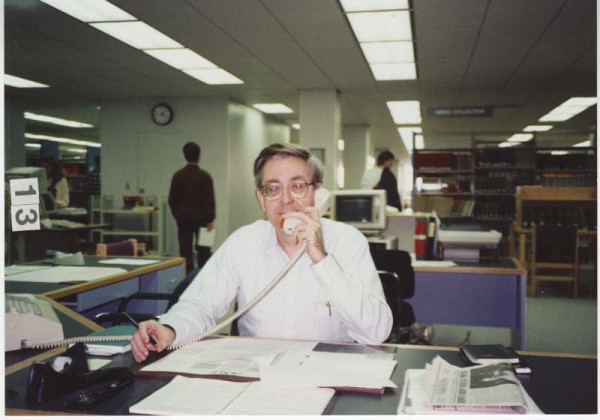
1988: Remote access to online catalog
November 30, 1988: A demonstration of remote access to LUIS (Library User Information System) was held for OU faculty, showing how they could access the library's catalog from their offices or homes.1990: Copy cards
Copy card service began to replace coin-operated photocopiers.1992: CALL System
The CALL online ordering system was introduced, allowing patrons to request books and articles to be inter-library loaned from Wayne State University without having to fill out paper forms.1992: Gopher network
The Library Menu became an option on the OU Gopher network (a predecessor to the World Wide Web). Within the Kresge Library main menu were such options as the Acquisitions List of New Books, CD-ROM Tutorials, and information about library services.1994: Email reference service
Kresge Library began providing answers to reference questions via email.1998: Voyager
The library's new online public access catalog, Voyager, was opened to the public.2002: Snack cart
A coffee and snack cart offered refreshments for sale in the library lobby, but closed after a year.2004: Ask A Librarian
Kresge Library instituted its popular 'Ask A Librarian' online reference service. Wireless network access becomes available throughout the library building.2009: Grand Opening of the Information Commons
On October 22, 2009, Kresge Library hosted the grand opening of the Technology Learning Center. The TLC features a brand new, state of the art Information Commons on the second floor of the library, the relocation of e-Learning and Instructional Support to the 4th floor of the library, and the UTS Help Desk's move to KL202.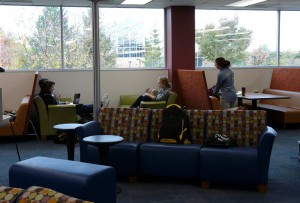
2010: Cafe opens
The Frankie Cafe (named after former University Librarian Suzanne Frankie) opens in the library's 'fishbowl' area.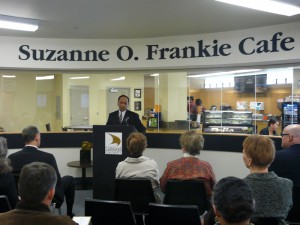
2011: 24-hour Access
Kresge Library began offering 24-hour access five days a week. Eventually, due to the popularity of this service, it was expanded to 24/7 access.Photos courtesy of the Oakland University Archives.